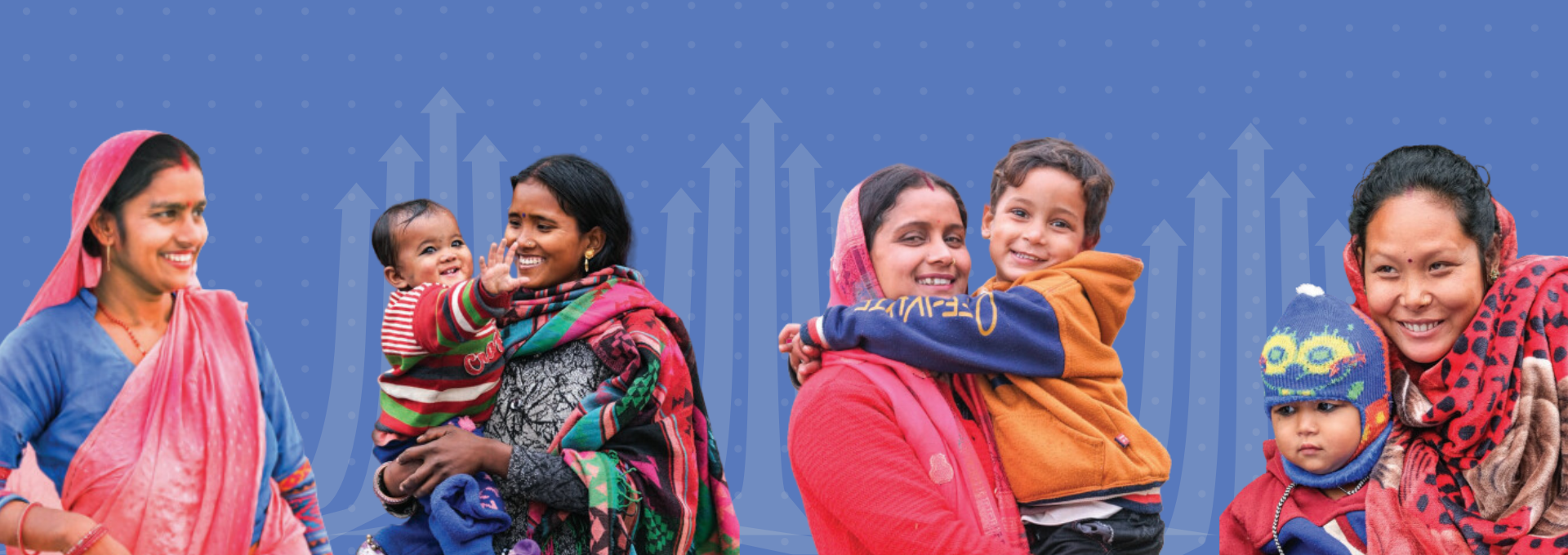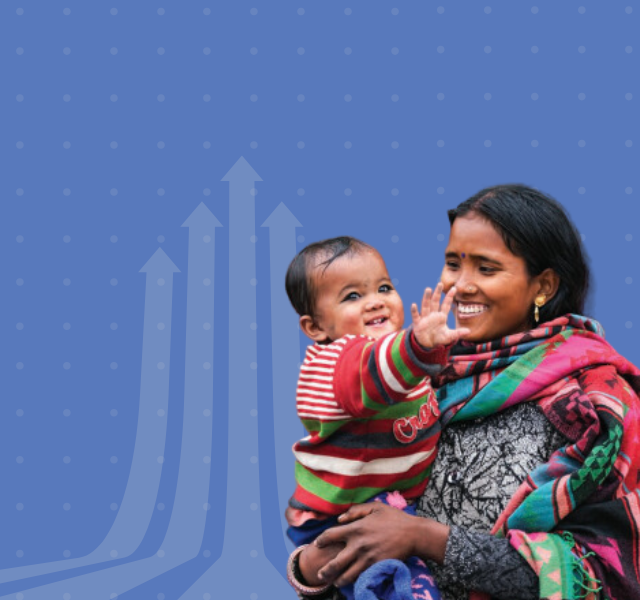

India, a nation with a vast and diverse population, faces significant challenges in ensuring the health and well-being of its citizens, particularly in the realm of reproductive, maternal, newborn, child, adolescent health, and nutrition (RMNCAH+N). Recognising the need for an integrated approach to address these interconnected health issues, the Ministry of Health and Family Welfare (MoHFW) launched the RMNCAH+N strategy in 2013 as a considered response to improve maternal and child health in the country to achieve the national health goals and Sustainable Development Goal (SDG) 3, which includes reducing maternal, newborn and child mortality.
The RMNCAH+N strategy in Uttar Pradesh is crucial for improving maternal and child health outcomes. The state has unique challenges, such as high rates of early marriage and low contraceptive use, necessitating an integrated approach to family planning counselling.
The Uttar Pradesh Technical Support Unit (UP-TSU) identified gaps in the knowledge and skills of RMNCAH+N counsellors, which led to the launch of a competency-building framework. Annual training sessions were organised to strengthen counselling skills and update knowledge on family planning methods. This training and mentoring program was designed around Miller’s Pyramid, a model for competency building that categorises skills development into four levels: Knows, Knows How, Shows, and Does. Counsellors progress through these stages, moving from novice to expert, ultimately reaching a level of mastery where their skills become second nature.
The framework also introduced key tools, such as the REDI (Rapport Building, Exploring, Decision Making, and Implementing the Decision) model, which helps counsellors guide clients in making informed choices. Another model, GATHER (Greet, Ask, Tell, Help, Explain, Return), was implemented to ensure structured and effective interactions with clients.
One of the major successes of this initiative has been the creation of dedicated counselling corners in health facilities. These private, confidential spaces have greatly improved the quality of interactions between counsellors and clients, particularly when discussing sensitive topics like family planning. Advocacy efforts played a key role in establishing these areas, with facilities increasingly allocating space for private counselling.
The competency-building program has had a notable impact on the counsellors themselves. Many have reported increased confidence and a higher level of visibility within their health facilities, leading to stronger relationships with clients and more effective service delivery. Feedback from clients, especially women, has been overwhelmingly positive, with many appreciating the personalised guidance and care offered by the counsellors. Creating a WhatsApp group allowed continuous engagement, where counsellors could share information and stay updated on new developments.
A key element of this competency-building journey has been introducing the Objective Structured Clinical Examination (OSCE), an evaluative tool commonly used to assess healthcare professionals. The OSCE system provides an objective way to map knowledge and competencies. By using checklists, observers can objectively assess and rate the performance of counsellors while providing valuable supportive supervision. Continuous tracking of OSCE scores has further enhanced the tool’s effectiveness, ensuring counsellors remain on a path of continuous improvement.
The ongoing journey of competency building in Uttar Pradesh is a testament to the positive impact that targeted, structured training and support can have on healthcare service delivery. With more confident and skilled counsellors, the future of RMNCAH+N services in the state looks brighter, ensuring that more women and families receive the care and guidance they need.
The Ministry of Health and Family Welfare (MoHFW) launched the RMNCAH+N strategy in 2013 as a considered response to improve maternal and child health in the country to achieve the national health goals and Sustainable Development Goal (SDG) 3, which includes reducing maternal, newborn and child mortality.
The RMNCAH+N strategy in Uttar Pradesh is crucial for improving maternal and child health outcomes. The state has unique challenges, such as high rates of early marriage and low contraceptive use, necessitating an integrated approach to family planning counseling. UP TSU support the Government of Uttar Pradesh in developing a a competency-building framework to strengthen the knowledge and skills of RMNCAH+N counsellors. This brief documents the journey of competency building initiatives for RMNCAH+N Counsellors in Uttar Pradesh.